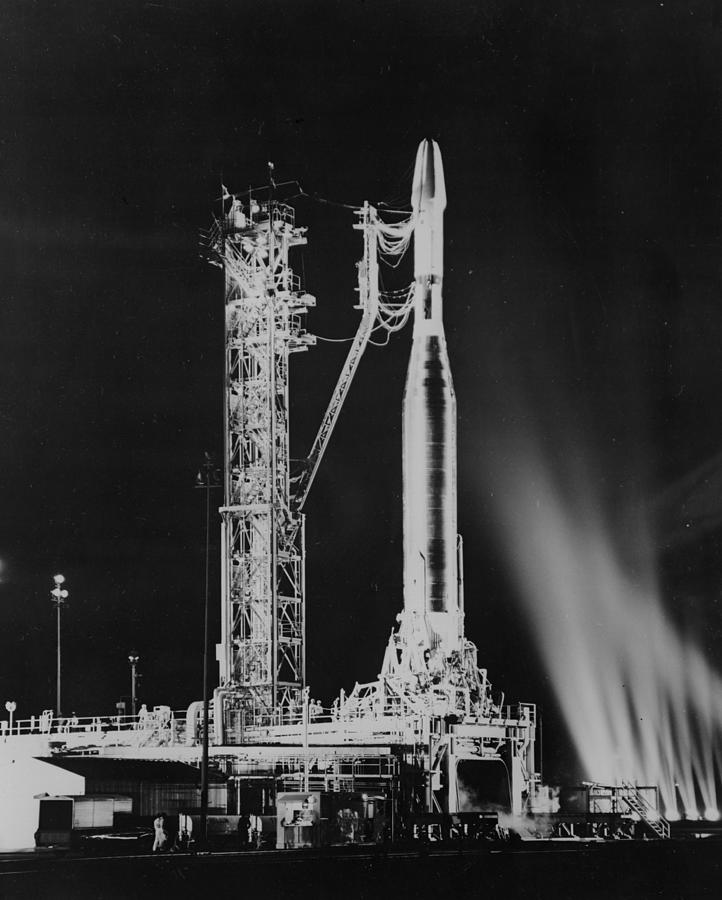Rocket To Venus: Humanity's Bold Leap Towards A New Frontier
Since the dawn of space exploration, humanity has dreamed of reaching distant planets, and among these celestial bodies, Venus has always held a special allure. Rocket to Venus is no longer a distant dream but a tangible goal within our reach. As technology advances, the prospect of launching rockets to Venus becomes increasingly realistic, opening doors to groundbreaking discoveries about our solar system's second planet from the Sun.
For decades, Venus has been shrouded in mystery, often overshadowed by Mars in terms of public interest and exploration efforts. However, recent scientific breakthroughs and renewed interest in Venus have reignited the conversation about sending rockets to this enigmatic planet. Understanding Venus could provide invaluable insights into planetary evolution, atmospheric dynamics, and even the potential for life beyond Earth.
This article delves into the exciting world of rocket technology, the challenges of traveling to Venus, and the immense scientific value of such missions. Whether you're a space enthusiast, a scientist, or simply curious about the future of space exploration, this guide will equip you with everything you need to know about rockets to Venus and their implications for humanity's journey through the cosmos.
Read also:Jordan Fisher Age A Comprehensive Look At The Rising Stars Life And Career
Table of Contents
- Introduction to Rocket to Venus
- Why Venus? Understanding the Importance of Exploring Venus
- The Technology Behind Rocket to Venus Missions
- Challenges in Sending Rockets to Venus
- The Scientific Value of Venus Exploration
- A Brief History of Venus Exploration
- Future Missions to Venus
- The Economic Impact of Rocket to Venus Missions
- Ethical Considerations in Space Exploration
- Conclusion: The Future of Rocket to Venus
Introduction to Rocket to Venus
Exploring Venus has long been a fascination for scientists and space enthusiasts alike. Rocket to Venus missions are becoming a focal point for space agencies worldwide as they aim to unravel the mysteries of this scorching-hot planet. Venus, often referred to as Earth's "sister planet," shares a similar size and composition but boasts an atmosphere that is vastly different from our own.
With temperatures exceeding 450°C and a thick, carbon dioxide-rich atmosphere, Venus presents unique challenges for spacecraft design. However, these challenges also make it an ideal candidate for studying extreme planetary conditions and testing the limits of human engineering. By sending rockets to Venus, scientists hope to gain a deeper understanding of the planet's formation, its atmospheric composition, and its potential role in the solar system's history.
Why Venus? Understanding the Importance of Exploring Venus
Planetary Evolution
Venus is a crucial piece of the puzzle in understanding planetary evolution. Despite its proximity to Earth, the planet has undergone a vastly different evolutionary path. By studying Venus, scientists can gain insights into how planets form and evolve over billions of years.
Atmospheric Dynamics
The thick, toxic atmosphere of Venus provides a natural laboratory for studying atmospheric dynamics. The planet's runaway greenhouse effect serves as a cautionary tale for Earth's climate future. Understanding Venus's atmosphere can help scientists model climate change on our own planet.
Potential for Life
Recent discoveries of phosphine in Venus's atmosphere have sparked renewed interest in the possibility of microbial life. While the surface conditions on Venus are inhospitable, the upper atmosphere may harbor conditions suitable for life. Rocket to Venus missions could help confirm or refute these theories.
The Technology Behind Rocket to Venus Missions
Launching rockets to Venus requires cutting-edge technology and innovative engineering solutions. Space agencies like NASA, ESA, and private companies such as SpaceX are at the forefront of developing the necessary tools for such missions.
Read also:June 17 Birthdays Celebrating Remarkable Lives And Contributions
- Heat Shield Technology: Venus's extreme temperatures necessitate advanced heat shield materials to protect spacecraft during atmospheric entry.
- Propulsion Systems: Efficient propulsion systems are essential for long-distance space travel. Ion engines and nuclear propulsion are being explored as potential solutions.
- Robust Instruments: Instruments designed to withstand Venus's harsh environment are crucial for collecting accurate data.
Technological advancements in these areas are paving the way for successful rocket to Venus missions in the coming decades.
Challenges in Sending Rockets to Venus
Despite the advancements in space technology, sending rockets to Venus remains a daunting challenge. The planet's extreme conditions pose significant risks to spacecraft and scientific instruments.
- Extreme Temperatures: Temperatures on Venus's surface exceed 450°C, making it one of the hottest places in the solar system.
- High Atmospheric Pressure: The atmospheric pressure on Venus is approximately 92 times that of Earth, equivalent to being 1 kilometer underwater.
- Toxic Atmosphere: Venus's atmosphere is composed primarily of carbon dioxide, with traces of sulfuric acid clouds that can corrode spacecraft components.
Overcoming these challenges requires innovative solutions and rigorous testing of spacecraft designs.
The Scientific Value of Venus Exploration
Understanding Planetary Formation
Venus holds valuable clues about the formation and evolution of terrestrial planets. By studying Venus, scientists can better understand the processes that shaped our solar system and potentially other planetary systems beyond.
Climate Modeling
Venus's runaway greenhouse effect provides a unique opportunity to study the effects of extreme climate change. This knowledge can inform climate models on Earth and help predict future environmental changes.
Searching for Life
The discovery of phosphine in Venus's atmosphere has reignited interest in the possibility of microbial life. Rocket to Venus missions could provide the data needed to confirm or refute this hypothesis, expanding our understanding of life in the universe.
A Brief History of Venus Exploration
Venus exploration dates back to the early days of space travel, with the first successful mission occurring in 1962. Since then, numerous spacecraft have visited Venus, each contributing valuable data to our understanding of the planet.
- Venera Program: The Soviet Union's Venera missions provided groundbreaking insights into Venus's atmosphere and surface conditions.
- Magellan Mission: NASA's Magellan spacecraft mapped Venus's surface using radar, revealing a wealth of geological features.
- Venus Express: The European Space Agency's Venus Express mission studied the planet's atmosphere and climate in unprecedented detail.
These missions laid the foundation for future rocket to Venus endeavors, showcasing the importance of continued exploration.
Future Missions to Venus
Several upcoming missions aim to further our understanding of Venus through advanced technology and innovative approaches.
- DAVINCI+ Mission: NASA's DAVINCI+ mission will study Venus's atmosphere and search for signs of volcanic activity.
- VERITAS Mission: Another NASA mission, VERITAS, will focus on mapping Venus's surface in high resolution to reveal its geological history.
- EnVision Mission: The European Space Agency's EnVision mission will investigate Venus's geological activity and atmospheric processes.
These missions represent a new era of Venus exploration, driven by the desire to unlock the planet's secrets.
The Economic Impact of Rocket to Venus Missions
Rocket to Venus missions have significant economic implications, both in terms of cost and potential benefits. While these missions require substantial investment, they also drive technological innovation and create job opportunities in the space industry.
Additionally, the data collected from Venus exploration can inform industries such as climate modeling, materials science, and aerospace engineering. The knowledge gained from these missions has the potential to generate long-term economic value, making them a worthwhile investment for governments and private companies alike.
Ethical Considerations in Space Exploration
As humanity ventures further into space, ethical considerations must be taken into account. Rocket to Venus missions raise questions about planetary protection, resource utilization, and the potential impact on Venus's environment.
Ensuring that space exploration is conducted responsibly and sustainably is crucial for preserving the integrity of other planets and protecting Earth's future. International cooperation and adherence to ethical guidelines will be essential as we continue to explore the cosmos.
Conclusion: The Future of Rocket to Venus
Rocket to Venus missions represent humanity's bold leap toward a new frontier in space exploration. By studying Venus, we can gain invaluable insights into planetary evolution, atmospheric dynamics, and the potential for life beyond Earth. Despite the challenges posed by Venus's extreme conditions, technological advancements and scientific ingenuity are paving the way for successful missions to this enigmatic planet.
We invite you to join the conversation about space exploration by leaving a comment, sharing this article, or exploring other content on our site. Together, we can continue to push the boundaries of human knowledge and achieve the dream of reaching the stars.


